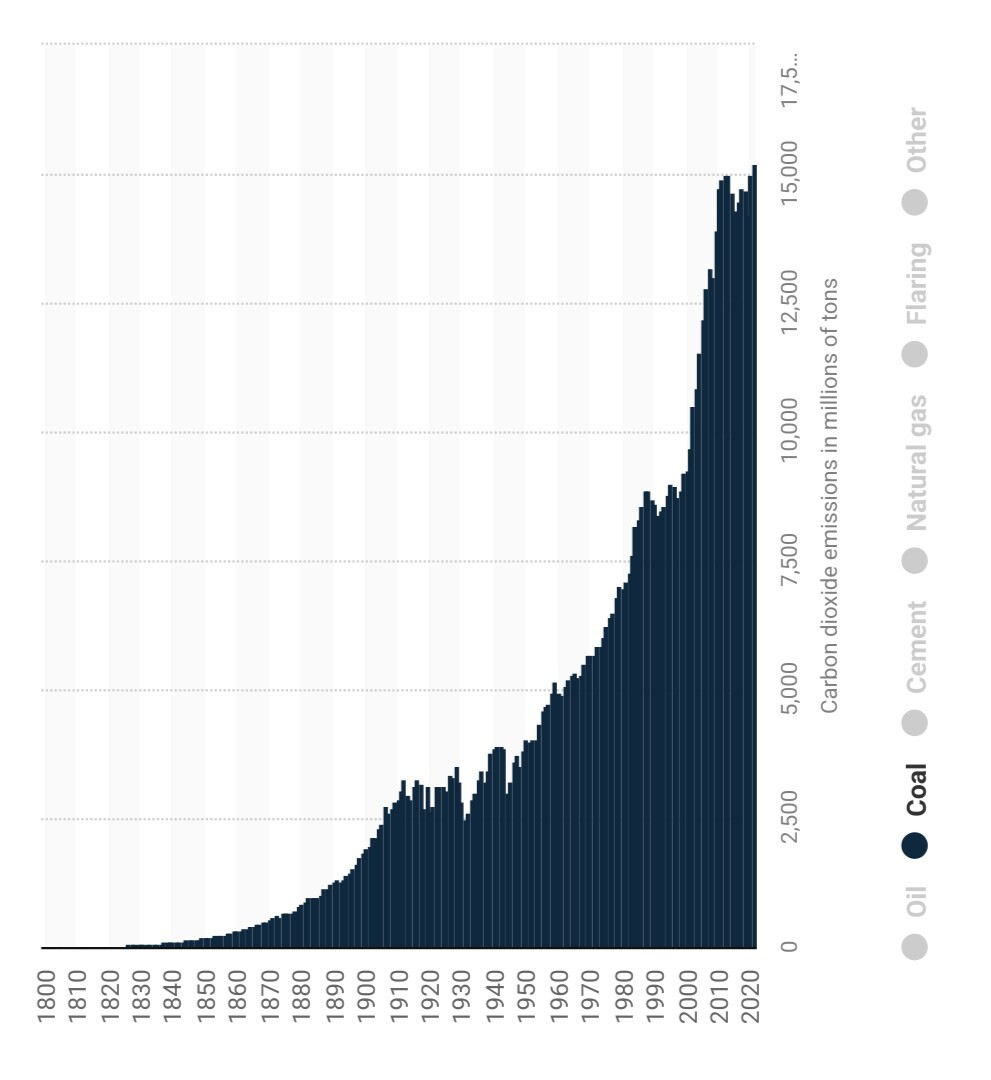Try less than one century. I noticed winter becoming less snowy year by year already in the 90’s.

This is the coal usage, not including oil and gas. At the rate of usage during the early 20th century, we wouldn’t have a problem right now.
If the carbon dioxide production had stayed about the same level as when this article was written, the “few centuries” prediction probably would’ve been accurate. But then we invented the petroleum-fueled internal combustion engine, and started driving little pollution generators all over the planet.
Then finding ways to produce more food (Haber-Bosch process), leading to a population explosion that demands more fossil fuels. We could have hit a natural growth barrier without it, minimizing our effects for longer.
It doesn’t even get cold anymore. Sure, there’s a random few days here and there where the temperature drops below freezing. But overall, winter has become just mild.
In southern wisconsin, only have felt the need to put on a light jacket 2 or 3 times this fall so far
Southern Wisconsin is around the same latitude as central Italy, like Rome. Climate systems like the Gulf Stream is responsible for the difference in climate. Those systems might be rearranged by climate change, which will lead to sudden and sharp changes.
Indeed, I am not excited to see how this plays out
I really don’t want to be the guy spoiling it for you, but we all die
Shpoilers!
Alexander von Humboldt, the Father of Ecology/Environmentalism, noted the first “theories” of climate change back around 1800. He was a Prussian naturalist who was one of the most famous naturalists of his time (more things like parks, streets, etc, are named after him than anyone else in the world).
He explored a lot of the world, particularly South and Central America. While he was in Venezuela in 1799, he noted,
During Humboldt’s travels through Venezuela in 1799, he noticed that farmers in the Aragua valley were deforesting the region to grow indigo. As a result, the nearby lake was drying up. Later, in a letter to President Thomas Jefferson dated June 1804, he wrote, “The wants and restless activity of large communities of men gradually despoil the face of the Earth.”
If you want to learn more about him, I highly recommend The Invention of Nature by Alexandria Wulf.


